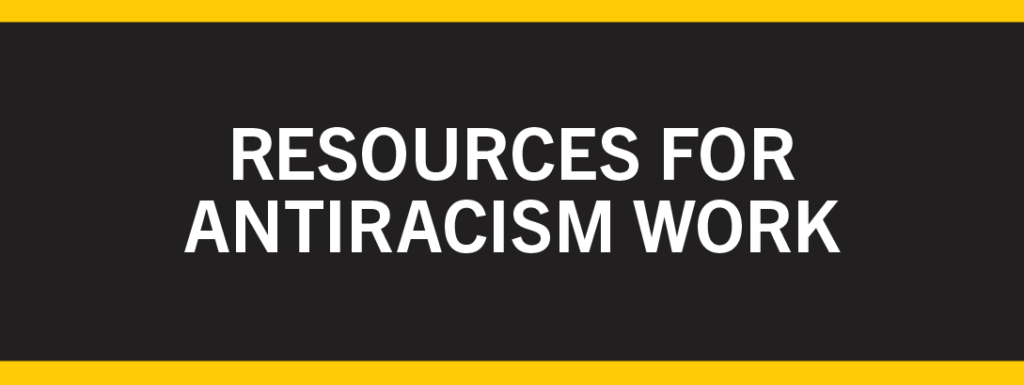
Sundance Institute staff members have compiled the following resources that support antiracism work, including organizations that accept donations of money or time, mental health offerings geared towards Black individuals, reading and viewing lists for self-education, and resources for becoming a stronger ally. We hope this will be a helpful starting point for those in our community as we do the critical work of confronting and dismantling anti-Black racism at the individual and institutional levels.
“The beauty of anti-racism is that you don’t have to pretend to be free of racism to be an anti-racist. Anti-racism is the commitment to fight racism wherever you find it, including in yourself. And it’s the only way forward.”
—Ijeoma Oluo
This list includes national resources as well as local organizations in the areas where Sundance Institute has offices. It is by no means comprehensive, and it will continue to grow. These resources are being compiled by Amber Espinosa-Jones, Moi Santos, Bird Runningwater, Ana Verde, Laure Bender, Burchie Benton, Alexandria Hinchey, Chandler Phillips, Kat Schulze, Evá Williams, Quayla Allen, Marcela Cubas, Marianne Verrone, Karen Bono, Kieran Medina, Ruthie Doyle, Yvonne Jimenez, Maria Santos, and Melissa Bowers on behalf of Sundance Institute’s Inclusion Staff Team and Staff Council.
In support of the work of our BIPOC colleagues and allies, please consider making a donation of $25 to any of the funds listed
Donating Time
Here are some organizations that are looking for volunteers at this time. Please proceed with caution when leaving your house, and wear the correct personal protective gear.
If you feel sick or have a cough, please stay home. Protect protesters and essential workers and stop the spread of COVID-19. If you are protesting or volunteering, please get tested regularly. Below we have provided information on where to get tested depending on where you are located.
Recommended Reading & Viewing
“[Allyship] is not supposed to be about you. It’s not supposed to be about your feelings. It’s not supposed to be a way of glorifying yourself at the expense of the folks you claim to be an ally to. It’s not supposed to be a performance. It’s supposed to be a way of living your life that doesn’t reinforce the same oppressive behaviors you’re claiming to be against.” —Mia McKenzie author and activist
Allyship Resources
This list is not exhaustive, nor can it ever be complete. Being an ally means daily work, education, and action, and the onus is on you to do the research and the work.
